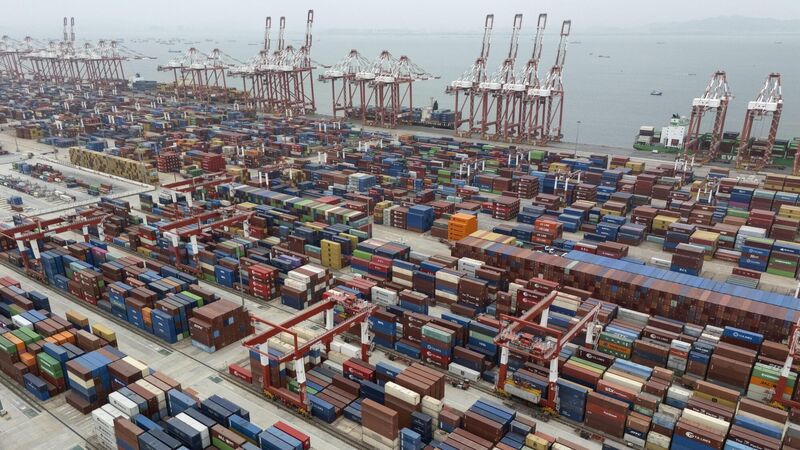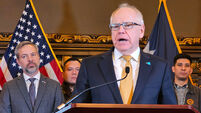EU launches consultation on potential €95bn tariffs on US goods if trade deal falters

Shipping containers are seen ready for transport at the Guangzhou Port in the Nansha district in southern China's Guangdong province, April 17, 2025. (AP Photo/Ng Han Guan, File)
Pharmaceutical imports and exports will largely not be included in the proposed €95bn worth of goods to be hit with tariffs by the EU if a deal with the US is not reached.
The European Commission has today launched a "public consultation" on a list of US imports which could become subject to EU countermeasures if ongoing EU-US negotiations do not result in "a mutually beneficial outcome and the removal of the US tariffs."














